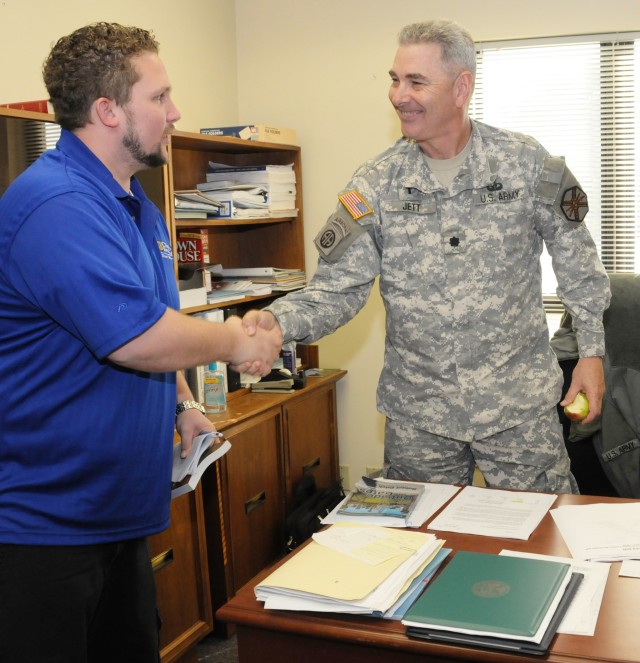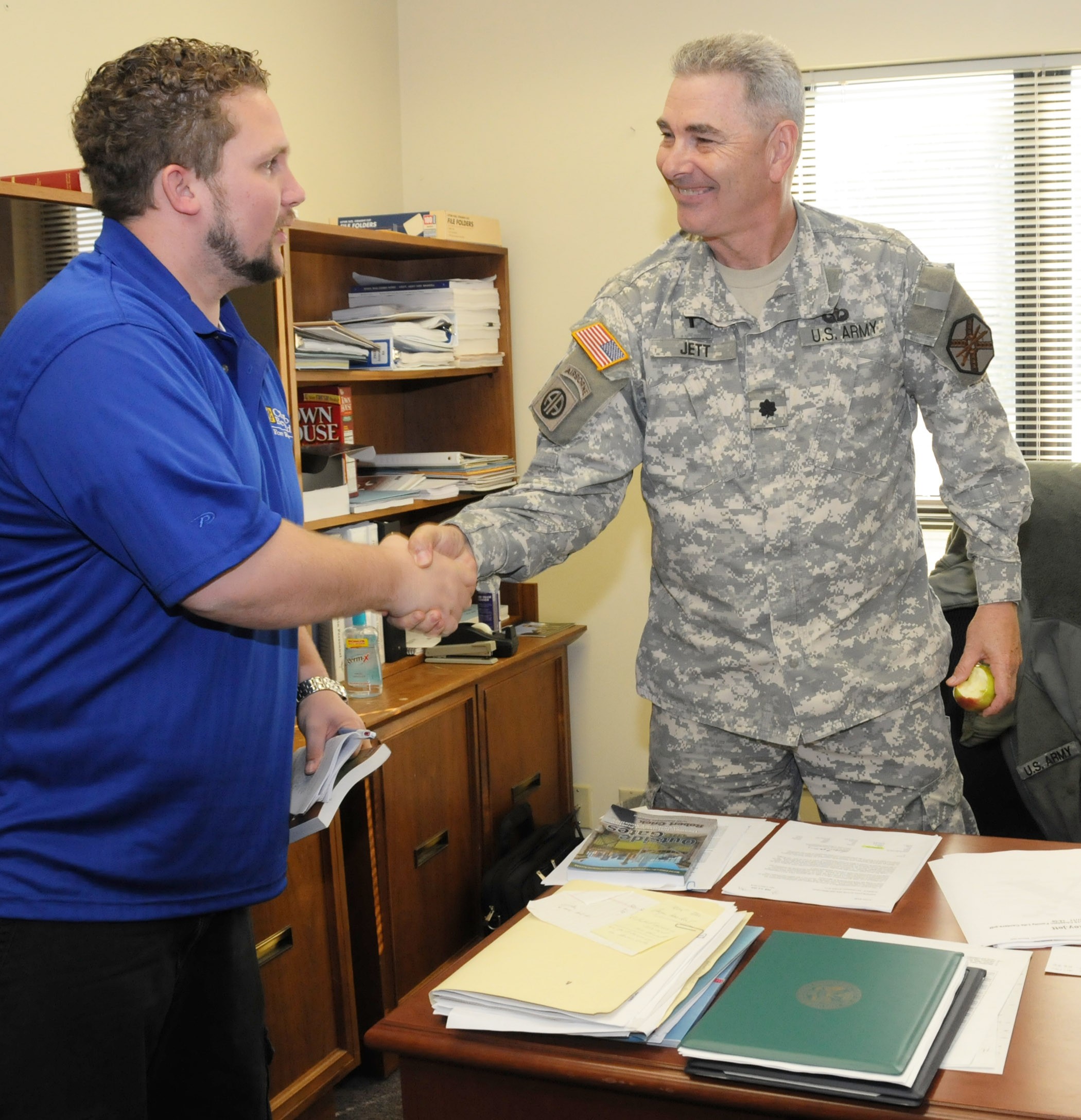FORT RUCKER, Ala. -- A day in the life of an Army chaplain demands constant spiritual readiness to meet the community's worshipping and counseling needs.
"We provide religious education ... so that spiritual growth can take place in the lives of those wanting to dig deeper into their faith," said Chaplain (Lt. Col.) Mickey Jett.
"This is one of the reasons we have a youth program, Sunday school and chaplains trained in marriage counseling - so that families can stay strong and the Soldier can concentrate on the Army's mission. A Soldier whose spiritual core and Family is healthy is a better Soldier," he said.
The result of a 1986 appellate court decision showed that the chaplaincy exists to provide for the free exercise of religion for Soldiers because they are away from home and their pastors.
"The chaplains at Fort Rucker are here to be a trusted friend of the Soldiers around them and to provide the opportunities for them to worship in the manner in which they need," said Garrison Chaplain (Col.) Dennis Newton.
Chaplains conduct religious services, funerals and memorial services and perform rites, ordinances and sacraments as core elements of their calling.
"This service goes all the way back to General George Washington who enlisted clergy to be chaplains in America's Army. Pastoral care and counseling, visitation, prayers and religious encouragement to Army families are all basic functions of the Army chaplain," Jett said.
Newton said that by maximizing the Army organizational structure, chaplains can connect with Soldiers and develop a closeness and sense of availability.
"Chaplains impact Soldiers and leadership in direct proportion to the amount of time they spend with them. If you show you care, then it gives you entry into the Soldiers' world. The unit ministry team, usually comprised of a chaplain and a chaplain's assistant, must then demonstrate they have the Soldier skills and abilities themselves," Newton said.
"When I came in (the Army), I was assigned to an infantry unit at Fort Campbell. I spent time in the field and practiced the proper ways of getting our UMT around to visit the companies. I was a good runner so I set a goal of beating as many young Soldiers during their PT tests as I could. I was running around 12 minutes at the time so I made an impression on most of them that an old guy could do it," he said.
By working shoulder to shoulder with troops chaplains display that they are Soldiers first, but that they are also easily accessible when the need arises, Newton said.
"I have found that visiting Soldiers in their areas and checking on them often reminds supervisors that they were going to refer a subordinate to the chaplain. Being seen leads to issues being remembered, addressed and dealt with," Newton said.
Army chaplains play dual roles. They are assigned as unit chaplains, and also serve as chapel pastors responsible for their parishioners, regardless of unit.
"Like in a civilian church, I have often made house calls and hospital calls to members of my congregations while in the Army. When I go for a unit member, it is more as a representative from the unit as their chaplain. But when it is a member of one of my chapels I conduct it as a pastoral visit. Sometimes the lines cross, but it always depends on what the need or expectation of the recipient is," said Family Life Chaplain (Maj.) Scott Crossfield.
Counseling is the same way, he said.
"A therapist would almost never have a relationship with someone in a public setting but I will if my client is also a parishioner," Crossfield said. "For me the pastoral relationship comes first when that relationship is there. That is unique to our calling as chaplains as compared to other helping professionals like doctors or lawyers."


Social Sharing